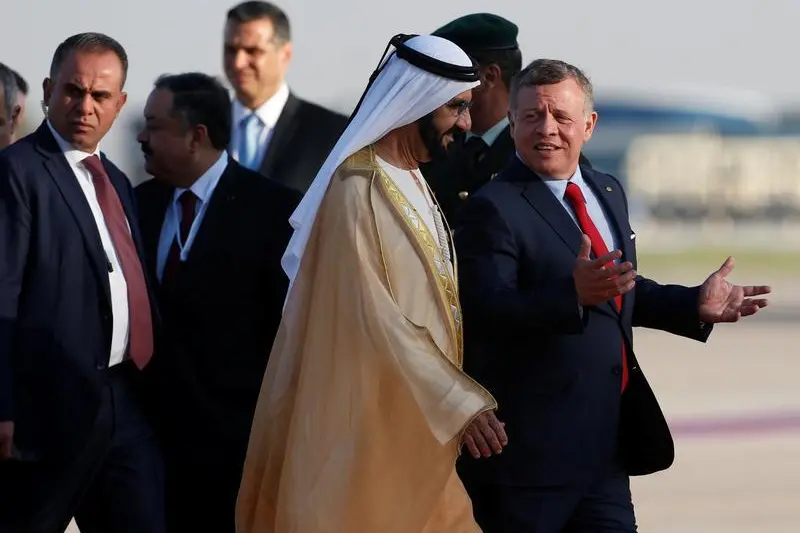PHOTO
By Hani Hazaimeh
AMMAN: The 2017 Arab Summit started today in Jordan with the participation of an unprecedented number of Arab leaders, whose agenda was topped by the issues of Palestine, terrorism and Arab coordination.
Since early Tuesday, leaders of Arab states started arriving in the Jordanian capital Amman for a gathering that comes amid serious challenges and crises facing the region.
UN Secretary-General Antonio Guterres also arrived in Amman on Tuesday to attend the summit.
Jason Greenblatt, the US envoy to the Middle East, said he was looking forward to attending as an observer “to discuss how best to work together against extremism and toward peace and prosperity.”
King Abdallah received the heads of state, accompanied by senior Jordanian officials. Sixteen Arab leaders have reportedly confirmed their attendance.
The heads of state of the UAE, Oman, Algeria and Iraq are unable to attend for health reasons.
The Syrian seat will remain unoccupied at this summit, but Jordan’s Minister of State for Media Affairs Mohammad Momani previously said any progress at the Geneva talks between the Syrian rivals might reflect positively on Syrian representation at the Arab League.
Jordan’s Foreign Minister Ayman Safadi said the summit could be an opportunity for Arab leaders to mend fences and achieve consensus on several political issues that have to be addressed without delay, considering their negative repercussions on Arabs.
King Salman, who is on a several-day visit to Jordan, heads the Saudi delegation. Jordanian media on Tuesday highlighted King Salman’s historic visit, reporting on the official and popular reception upon his arrival on Monday, and on the meeting between him and King Abdallah, which concluded with the signing of 14 agreements on political, economic and trade cooperation.
The draft resolutions adopted by Arab foreign ministers during their preparatory meeting on Monday include a draft statement opposing plans by President Donald Trump to move the US Embassy in Israel to Jerusalem and to consider alternatives to a Palestinian state.
Arab League member states “reaffirm their commitment to the two-state solution and to the right of the State of Palestine to restore its sovereignty over the territories occupied in 1967, including east Jerusalem,” the draft said.
It calls on “all countries to respect UN Security Council resolutions that reject Israel’s annexation of occupied east Jerusalem” and “not to move their embassies” from Tel Aviv to the Holy City.
The Council of Arab Foreign Ministers on Monday approved 17 draft resolutions, including the rejection of unilateral steps that would “jeopardize the historic and legal status” of Jerusalem. The draft was to be presented to Arab leaders at their summit today.
© Arab News 2017





















